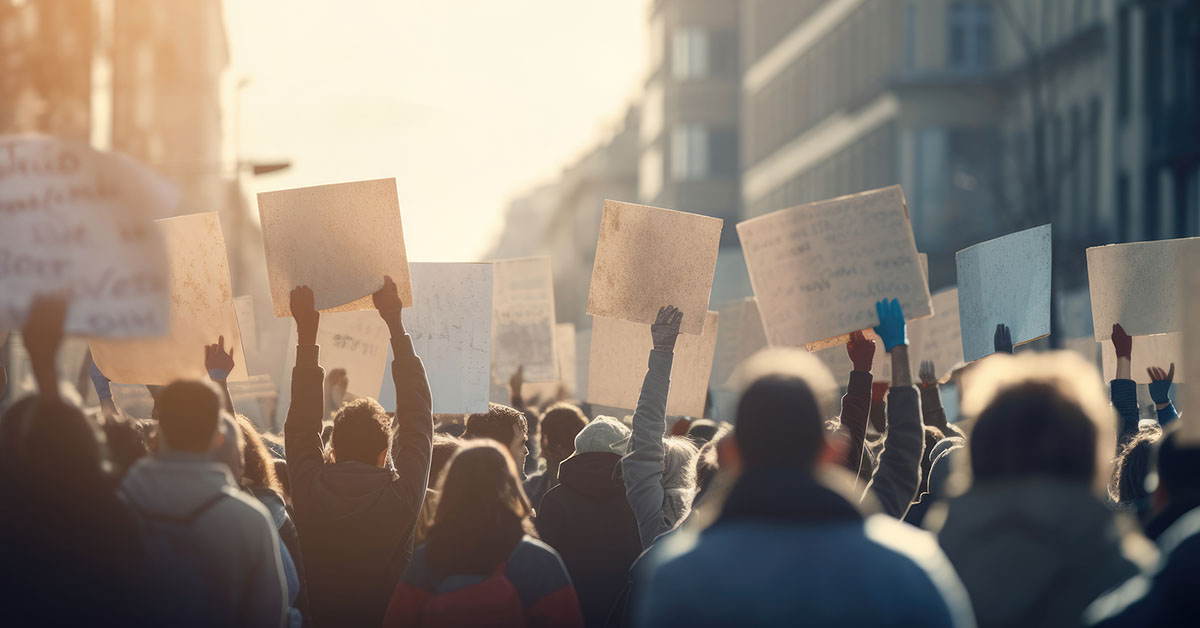

When the world is a sea of risk, you need to know your business, your people and your intellectual property are safe.
We’re your Liferaft.

Discover the importance of monitoring the dark web for potential threats and civil unrest that could impact your business continuity and brand.
The dark web refers to the part of the internet that is not indexed by search engines and requires special software, such as Tor, to access. It is a hidden network that allows users to remain anonymous and carry out various activities, including illegal ones.
It is crucial to have a deep understanding of the dark web's workings to effectively monitor it for threats of civil unrest. This involves familiarizing yourself with the different layers of the Internet, such as the surface web, the deep web, and the darkest part, where illegal activities often take place.
Monitoring the dark web for threats of civil unrest can provide several key benefits for individuals and organizations. These benefits include:
Early detection of planned civil unrest: By monitoring the dark web, you can identify discussions and plans related to civil unrest ahead of time. This allows you to take proactive measures to ensure the safety and security of your brand and stakeholders.
Gathering intelligence: Dark web monitoring can provide valuable intelligence about the motivations, tactics, and strategies of protest organizers. This information can help you better understand the protest landscape and develop effective countermeasures.
Mitigating reputational risks: By monitoring the dark web, you can identify any negative or damaging content related to your brand that may be shared or promoted during civil unrest. This enables you to take timely action to mitigate reputational risks and protect your brand image. Utilizing tools like Navigator and its DarkOwl integration makes this process easier.
Monitoring the dark web requires specialized tools and technologies. Some of the commonly used tools for dark web monitoring include:
Web crawlers: These are automated bots that can navigate the dark web and collect information from various sources.
Data analytics software: This software can analyze the collected data and identify relevant threats or patterns.
Threat intelligence platforms: These platforms provide real-time monitoring and alerting capabilities, allowing you to stay updated on potential threats. Further, platforms like Navigator enable safe browsing on the dark web, allowing you to capture posts secure in the knowledge that you will have access to the information even if the original post is deleted.
Dark web search engines: These search engines are specifically designed to index and search for content on the dark web.
By leveraging these tools and technologies, you can effectively monitor the dark web for threats of civil unrest and take appropriate actions.
To ensure successful dark web monitoring, it is important to follow best practices. Some key best practices include:
Define clear monitoring objectives: Clearly define your monitoring objectives and the specific threats you want to detect on the dark web.
Establish reliable data sources: Identify reliable sources of dark web data and establish partnerships or subscriptions to access them.
Implement automated monitoring: Set up automated monitoring systems, such as Navigator, to continuously scan the dark web for relevant information and threats.
Analyze and validate findings: Thoroughly analyze the collected data and validate the findings to ensure accuracy and reliability.
By following these best practices, you can enhance the effectiveness of your dark web monitoring efforts and stay ahead of threats.
Several organizations have successfully implemented dark web monitoring strategies to mitigate threats and protect their brands. Here are a few case studies and success stories showing how dark web monitoring has helped organizations and government agencies avoid business disruption:
Technology Company: A global technology company implemented dark web monitoring and successfully detected a planned protest against its new product launch. They were able to take preventive measures to ensure the event proceeded smoothly and safely.
Non-profit Organization: This non-profit organization actively monitors the dark web for any discussions or plans related to protests that may impact its humanitarian efforts. By staying ahead of potential threats, it has been able to continue its operations without major disruptions.
Government Agency: This agency uses dark web monitoring to identify any potential threats to national security that may arise from civil unrest. Their proactive approach has allowed them to prevent security breaches and maintain public safety.
These case studies demonstrate the effectiveness of dark web monitoring in mitigating threats and protecting organizations and individuals.